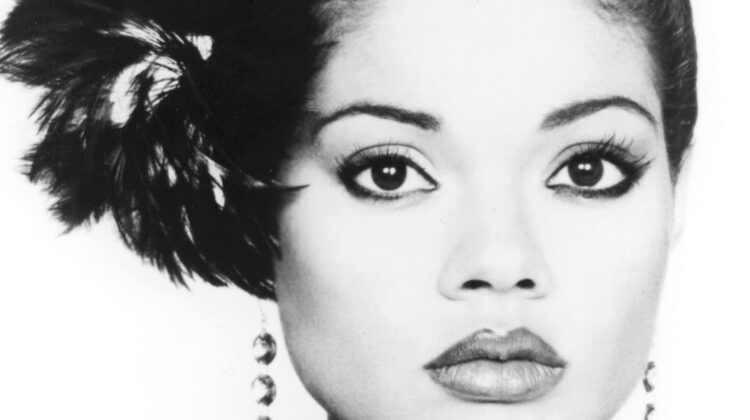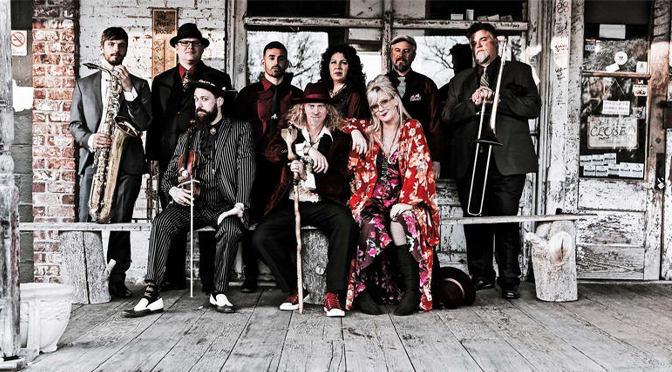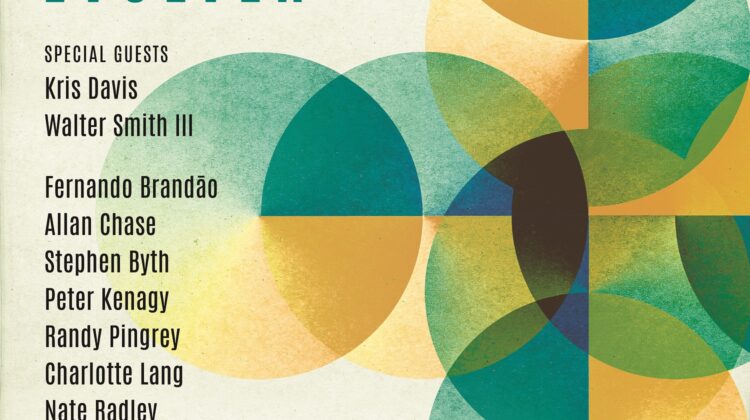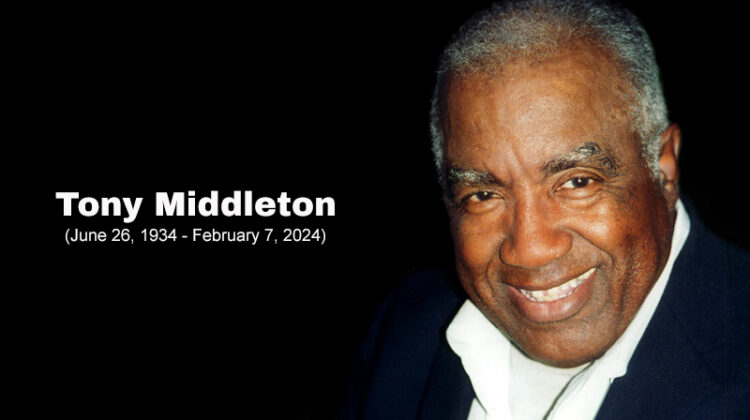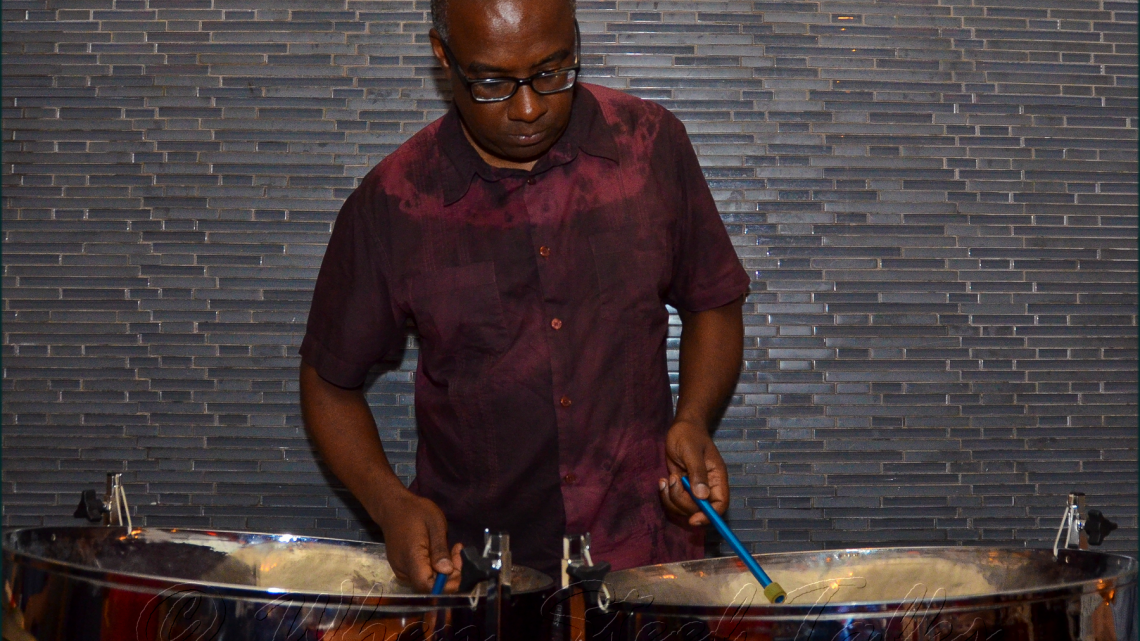By John Stevenson
Garvin Blake is the thinking man’s jazz steel pannist. He has a well thought out approach to playing the steelpans and brings a high level of technical sophistication to his craft, which easily sets him apart from other exponents of the unique instruments he has mastered. Evidence of this abounds on Parallel Overtones, Garvin’s second recording as a leader.
This new accomplishment is a long overdue follow-up to his standard-setting ‘Belle Eau Road Blues’, recorded just before the turn of the millennium that featured outstanding originals and stand-out interpretations of jazz and calypso classics such as Wayne Shorter’s ‘Footprints’ and Lord Kitchener’s ‘Pan in A Minor’.
It’s clearly a winning formula. On ‘Parallel Overtones’, Garvin’s reverence for the intertwined traditions of steelpan, calypso and jazz-oriented improvisation carry on mellifluously in this delightful collection of jazz, bossa nova and ‘kaiso’ standards. What’s more, he is joined once again by eminent Vincentian jazz pianist and calypso arranger, Frankie ‘Maestro’ McIntosh, who like some kind of harmonic lapidary, buffs and polishes the ten gem-like compositions on the CD to as close to perfection as one can reach for.
The recording opens up with ‘Every Time I Pass’, a Trinidadian folk classic. It is bestowed with a haunting Shango percussive grounding. Garvin’s resonant pans, Chris Eddington’s muscular drumming, Calvin Jones’ ever-present bass and percussionist Abdou M’Boup’s unmistakable touch on percussion will cast a positively hypnotic spell over the listener. Indeed, this composition represents the essence of Garvin’s whole approach to the recording. In his interview with Barbadian saxophonist and film-maker, Jeff Grannum, Garvin explains:
“On this recording, I am trying to be a channel for the power and possibilities of the calypso and steelpan music genres. I am using them in non-traditional settings. I’m attempting to fuse them with jazz and traditional calypso. I am also flipping roles – calypso morphs into jazz and vice versa. What we are essentially doing is demonstrating the synergy and kindred nature of the music coming out of the African Diaspora”.
 The cleverly arranged ‘Stella by Starlight’ featuring Calvin Jones’s sure-footed double bass plucking, updates a well-worn standard. ‘One for Boogsie’ is a fitting tribute to steelpan genius Lennox ‘Boogsie’ Sharpe, with a buoyant backbeat set up by Gregory Rivero and Omar McIntosh’s driving bass. Lord Kitchener’s ‘Pan in Harmony’ is sealed, signed and delivered in the form of an elegant and lightly percussive waltz – a stroke of melodic genius.
The cleverly arranged ‘Stella by Starlight’ featuring Calvin Jones’s sure-footed double bass plucking, updates a well-worn standard. ‘One for Boogsie’ is a fitting tribute to steelpan genius Lennox ‘Boogsie’ Sharpe, with a buoyant backbeat set up by Gregory Rivero and Omar McIntosh’s driving bass. Lord Kitchener’s ‘Pan in Harmony’ is sealed, signed and delivered in the form of an elegant and lightly percussive waltz – a stroke of melodic genius.
On Mighty Sparrow’s ‘No Money No Love’, Garvin and his band mates take you straight to Port-of-Spain, conjuring up all of the exuberance and revellery of the annual carnival. Herbie Hancock’s ‘Dolphin Dance’ is given a rollicking reggae interpretation and is drenched in the groove factor, ready to be enjoyed from Montego Bay to Manhattan.
‘Black Orpheus’ (also known as ‘Manha de Carnaval’), a pretty bossa nova, starts off with an airy piano introduction from Frankie before a smooth segue into Garvin’s stirring jazz pan improvisations. The excellent vibes continue on Clive Zanda’s ‘Fancy Sailor’, a staple of the kaiso-jazz which is injected with a very creative lease of improvisational life. The hardy perennial, ‘Body and Soul’, is updated with a catchy and upbeat R&B flavour.
Calvin Jones’ bouncy bassline and Frankie’s mercurial piano solo certainly enhance the delivery. The mid-tempo Mighty Sparrow tune, ‘Ahfraid’, is a gorgeous number which eloquently confirms Garvin’s highly creative pan-jazz artistry and also throws the spotlight on Sheldon Thwaites’s propulsive drumming, Abdou M’Boup’s mastery of the congas and Iman Pascall’s iron and shaker percussion magic.
Parallel Overtones is an impressive recording which leaves you in no doubt that the jazz steelpan tradition – via West Africa, Trinidad, Brazil and the Big Apple – is solid and safe in the hands of Garvin Blake.



